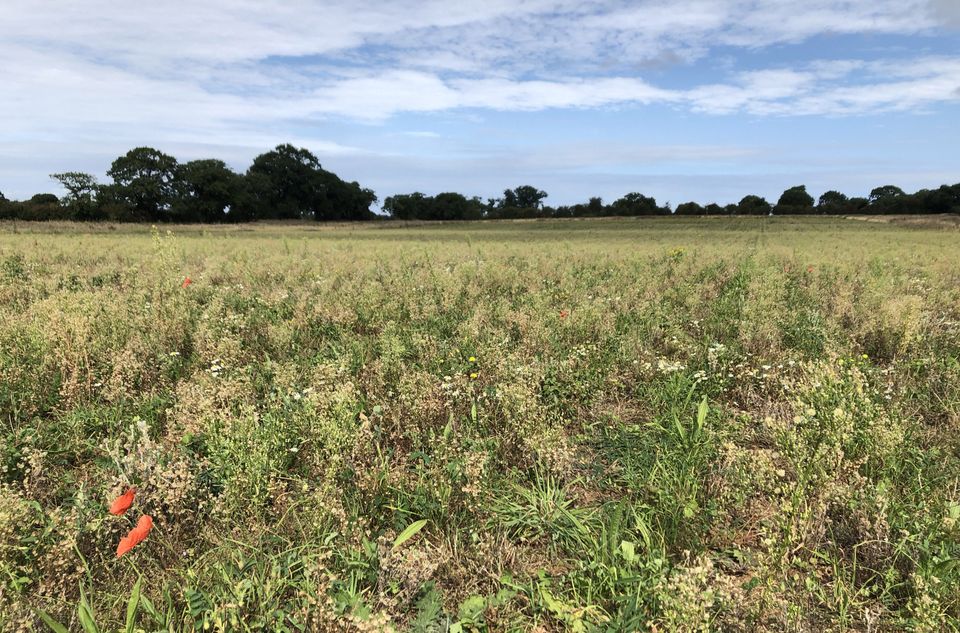Fundamental changes are needed to nature-harming industries such as farming, fisheries and fossil fuels, which are costing the world trillions of dollars a year, a UN report warns.
Action is also needed to reconnect people with nature, reform the financial systems that pour billions of pounds of subsidies into damaging activities, protect those fighting to defend the environment and even rethink economic measurements of growth, the UN’s biodiversity body, Intergovernmental Science-Policy Platform on Biodiversity and Ecosystem Services (IPBES), said.
The second of two studies this week from IPBES said around half the world’s economic output (58 trillion dollars in 2023) was highly or moderately dependent on nature.
Wildlife such as puffins are affected by fisheries and climate change (Owen Humphreys/PA)
But efforts to conserve, restore and sustainably use nature receive just a fraction of the value they generate (135 to 156 billion dollars) and current conservation approaches are failing to halt global declines in the natural world that humans need to survive.
With the world facing interlinked crises of nature loss, pollution and climate change and the projected collapse of key natural systems such as coral reefs, ice sheets and the Amazon rainforest, transformative change is necessary and urgent, the report warned.
Delaying action by even a decade would double the costs compared to tackling the issue right now, and acting today could generate 10 trillion dollars in value and support nearly 395 million jobs by 2030, it said.
An IPBES study in 2019 warned that wildlife and habitats were declining at an unprecedented rate worldwide, eroding the foundations of human survival and wellbeing, and said huge changes were needed to arrest those declines.
The latest report, by around 100 authors drawing on thousands of pieces of research, set out to define what that “transformative change” looks like.
It warned that the underlying causes of nature’s decline – identified as disconnection from and domination over nature and people, the way power and wealth are concentrated and prioritising short-term, individual and material gain – need fundamental, system-wide reform.
This would require action throughout society, according to co-chair of the report Prof Karen O’Brien of the University of Oslo – from a rethink of GDP measures of economic growth in favour of national wellbeing metrics to nature education in schools and people joining initiatives such as community gardens.
Community gardens can help people reconnect with nature, experts said (Alamy/PA)
The report draws on numerous examples which show positive outcomes can occur in less than a decade on a local level, and overcoming the barriers to change will allow those examples to “flourish all over”, Prof O’Brien said.
“We’re not saying its going to be easy, but we actually do know what needs to shift in society for a just and sustainable world,” she said.
“Whether it’s community gardens or community conservation, it’s how we show up individually and collectively that makes the difference for transformative change.”
Fellow co-chair Professor Lucas Garibaldi, from the National University of Rio Negro, said history showed societies could transform on an immense scale, such as during the industrial revolution.
He said: “While that era wrought terrible environmental and human costs, it stands as proof that fundamental, system-wide change is achievable, although it occurred over a much longer period of time than is needed for current transformative change for a just and sustainable world.
“To meet our shared global development goals today means we need to embark on a new transformation – one that urgently conserves and restores our planet’s biodiversity rather than depleting it, while enabling everyone to prosper.”
The report, which had to be approved by representatives of 147 governments before it was published, warned there are serious challenges to securing change.
These include the persistence of colonial-era approaches (in which western nations exploit natural resources and people), huge wealth inequalities, corruption, lobbying by vested interests, and unsustainable consumption, production and individual lifestyles.
The report set out ways in which change can happen, including conserving, restoring and regenerating areas which are valuable for nature and people, such as public efforts to sustainably manage community forests.
It also highlighted that around 2,000 people were killed between 2012 and 2022 fighting environmentally destructive projects such as deforestation, mining and dam-building, and said protecting environmental defenders will help support transformative change.
Regenerative farming practices such as growing cover crops to protect and restore soils can support nature (Emily Beament/PA)
It said there needs to be systemic change and focusing on nature in the most damaging sectors – agriculture and livestock, forestry, fisheries, infrastructure and urban development, mining and fossil fuels.
The report warned that the environmental effects caused but not paid for by these sectors, such as greenhouse gas emissions, water pollution and soil damage, are estimated to have cost 10.7 trillion dollars in 2023.
But measures including regenerative agriculture, agroforestry and habitat protection in farming landscapes can help nature and boost crops, the experts said.
The report called for an overhaul of finance systems, including reforming the 1.4 to 3.3 trillion dollars of subsidies explicitly supporting sectors driving nature’s decline and redefining economic metrics such as GDP to take into account environmental and social values.
It said nature should be integrated into policy and decision-making and there needs to be a change in views so people recognise their connection with nature, for example through education.


